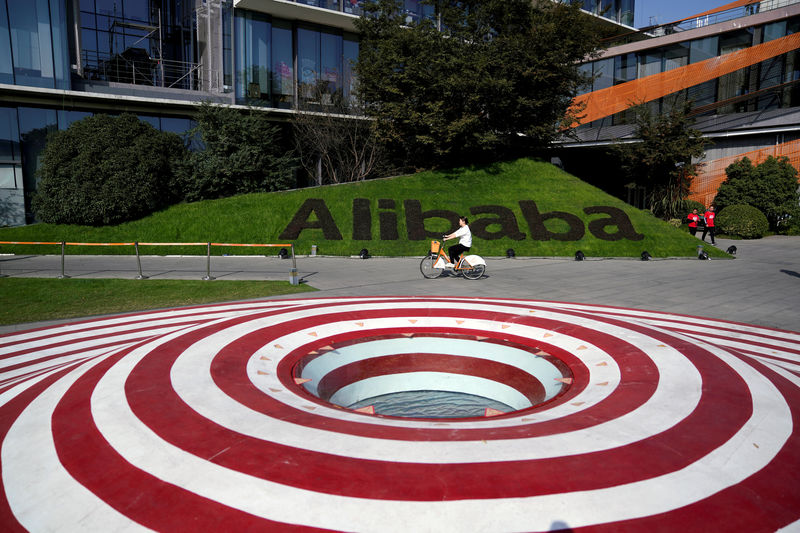HONG KONG (Reuters) - Chinese e-commerce giant Alibaba (N:BABA) is set to price its first share sale in Hong Kong next week, raising up to $13.4 billion in what will be the largest deal in the city since 2010 and the world's biggest ever cross-border secondary listing.
WHY IS ALIBABA LISTING IN HONG KONG?
Analysts say establishing a base outside the United States gives the U.S.-listed company options, especially in the light of the U.S.-China trade dispute.
It is an "escape valve listing", said Travis Lundy, an analyst at Quiddity Advisors who publishes on SmartKarma.
"Investors can take delivery or buy and sell shares (in Hong Kong) should U.S.-China relations worsen. This should be considered a non-negligible benefit for any U.S.-listed Chinese company," he added.
Alibaba, which is due to start trading on Nov. 26 in Hong Kong, could also benefit from Chinese demand.
While it will not be eligible for trading until June in the Stock Connect that links Shanghai and Shenzhen with Hong Kong, analysts and investors expect demand from mainland mom-and-pop investors to lift its valuation.
Alibaba's Hong Kong deal is technically small versus its $476 billion market capitalisation and it will dilute existing shareholder by just 2.8%, the company calculates.
WHY NOT LIST IN SHANGHAI OR SHENZHEN?
Alibaba is essentially too big for its home market.
China hosts the world's No.2 pool of equity capital, but local share sales are usually much smaller than in Hong Kong.
While Alibaba holds the record for the world's biggest initial public offering, with its $25 billion New York listing in 2014 - pipping Hong Kong which hosted Agricultural Bank of China's $22 billion deal in 2010, China's biggest IPO in the past decade was the $7.3 billion float in 2009 of China State Construction Engineering Corp (SS:601668), Refinitiv data shows.
Beijing is working to help fast-growing start-ups list at home as well as lure back those that got away, including Alibaba. This year it launched the STAR Market to host innovative earlier-stage companies under a less controlled, more Nasdaq-style listing system - a first for China.
WHY IS IT A BIG DEAL FOR HONG KONG?
Alibaba postponed its listing plans over the summer as political protests that began in June worsened.
The company's decision to push ahead now will be seen as a vote of confidence in Hong Kong's financial future even as protests grow increasingly violent.
The listing is also the culmination of six-plus years of argument, consultations and rule changes that all stemmed from Alibaba's decision in 2013 to list in New York, not Hong Kong.
That was driven by the city's refusal to ease its one-share-one-vote stance to accept Alibaba's unusual governance, where a self-selecting group of company insiders control the majority of board seats.
Many market participants felt being able to trade Alibaba alongside arch-rival Tencent (HK:0700) would have encouraged other tech companies to follow suit - rebalancing Hong Kong's reputation for hosting stodgy Chinese state-owned enterprises and local tycoon-controlled conglomerates.
Last year, bourse operator Hong Kong Exchanges & Clearing (HK:0388) pushed through rules that allowed firms to list with different classes of shares, opening a path for tech giants listed elsewhere such as Alibaba to sell shares in the city.

Alibaba is the first to do so, although others are expected to consider following the same path.